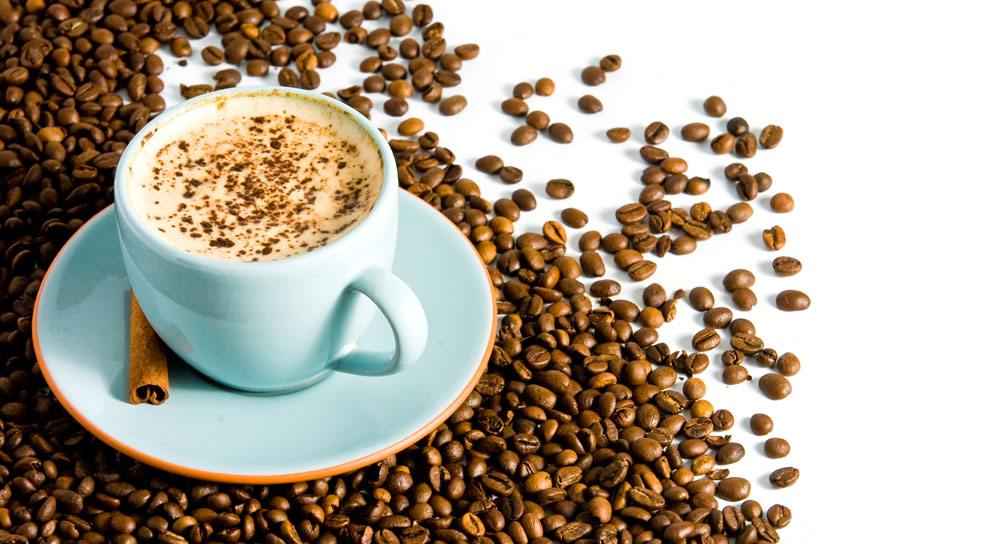Three cups of coffee a day, stay away from early death, eat two lunches, no weight gain.
Pay attention to coffee reviews (Weixin Official Accounts vdailycom ) and find a beautiful cafe to open your own shop
Researchers from Imperial College London and the International Agency for Research on Cancer (IARC) followed 520,000 people aged 35 and over in 10 European countries for an average of 16 years. The results showed that those who drank one cup of coffee a day had a 12 percent lower risk of death than those who drank no coffee at all; for those who drank three cups a day, the figure was 18 percent. "Coffee is high in antioxidants and phenolic compounds that play a significant role in cancer prevention," said study leader Veronica Setiawan of the University of Southern California's Keck School of Medicine.
The researchers also found that coffee drinkers had better liver function and better blood sugar control. However, scientists believe that it is the antioxidant plant compounds in coffee, not caffeine itself, that are beneficial to health, so drinking decaf coffee also has health benefits.
Older people lose sleep for one night or increase the risk of aging dementia
Researchers at the University of Washington School of Medicine recruited 17 healthy volunteers between the ages of 35 and 65 with no long-term sleep problems or brain damage. The researchers had volunteers spend the night wearing headphones in a specially designed soundproof room while their brain waves were monitored. Volunteers were randomly assigned to one of two groups, one with disturbing noise coming from headphones while they were in dreamless slow-wave sleep, and one without. A month later, the experiment was repeated, but the two groups were reversed, meaning that the volunteers who had slept normally the previous time were subjected to noise interference.
The results showed that even after just one night of sleep disruption, beta amyloid increased by 10 percent in their brains, but Tau protein remained unchanged. Tau protein increased in volunteers who slept poorly for a week. Previous studies have shown that Tau forms fibrous tangles inside brain cells, and excessive accumulation can cause cells to rupture. Beta-amyloid accumulates in excess on the outside of brain cells and disrupts cell-to-cell communication. Alzheimer's patients have abnormal Tau protein kinks and beta amyloid levels in their brains. Researchers believe there is a link between poor sleep and increased levels of two proteins associated with Alzheimer's. We believe that chronic poor sleep in middle age may increase the risk of Alzheimer's disease later in life.

You can't eat meat like this! Breakfast at 7:00, 2 small lunches a day
Well-known Australian nutritionist Susie Burrell recently said that eating breakfast, lunch and dinner regularly is an important part of weight control, and she believes that eating each meal at the best time can effectively consume energy and avoid weight gain. According to reports, Australia's well-known nutritionist Susie believes that breakfast as the first meal of the day, should be enjoyed at 7:00 or 8:00 in the morning, she believes that eating breakfast at this time "can make the body's functions work", at the same time "can also arouse the body's natural metabolism".
To avoid unnecessary snacking, Susie believes people should eat two lunches, one between 11 a.m. and 12 a.m. and the other between 2 p.m. and 3 p.m. Dinner should also be eaten before 8 p.m. at the latest, because "our bodies need to stop eating for the next 10 to 12 hours overnight," so she recommends eating dinner as early as possible. If dinner is late because of work or other problems, Susie recommends that such people make lunch the main meal, drink soup in the evening, or add snacks at 3 p.m. or 4 p.m.
Put junk food in dense bags or help "keep your mouth shut"
A psychology researcher at Ghent University in Belgium designed a series of experiments to see how dense bags affect people's eating habits. In the first experiment, they gave participants a large bag of Skittles to see how much they ate during their grocery shopping. Half of the subjects were given Skittles in tight bags, while the other half were given Skittles in bags that couldn't be resealed after opening. In the second experiment, a group of movie-goers were given a snack of fudge, packaged in the same way. In a third experiment, volunteers were asked to record their sweet food consumption for six days, including whether the bags were tight or unresealable.
The results showed that putting junk food into dense bags significantly reduced people's desire to eat. For example, in the Skittles experiment, those who received the dense bag ate a quarter of the Skittles, while those who could not open the bag ate half. The researchers say this may be because self-sealing, dense bags create a psychological barrier that somehow stops people from eating constantly.
Can you fly? Most Americans refuse.
Passengers in Dubai will be able to take "air taxis" later this year. Dubai Road Transport Authority announced in June that its Air Taxi (AAT ) service would be tested sometime between October and December, with German airline Volocopter providing aircraft.
However, YouGov said in a report Friday that only a quarter of American adults have heard of driverless air taxis, and more worryingly, half of those surveyed said they felt driverless taxis were unsafe and only 5 percent thought the technology was reliable. A further 79 percent of respondents said they would take the air taxi as long as it was controlled. While the survey data suggests that there is skepticism about driverless air taxi technology at the moment, YouGov's technical analysts believe that driverless air taxis will emerge within five years.
Important Notice :
前街咖啡 FrontStreet Coffee has moved to new addredd:
FrontStreet Coffee Address: 315,Donghua East Road,GuangZhou
Tel:020 38364473
- Prev

Drinking coffee will help clear the intestines and defecate.
Follow the caf é (Wechat official account vdailycom) found that many people will have a bowel movement after drinking coffee. 1. For some people, coffee may cause the movement of the colon. A small study in 1990 found that 29% of people reported that they would defecate within 30 minutes after drinking coffee.
- Next
World Coffee producers Forum-Live broadcast that you can't miss!
Following Cafe Review (Wechat official account vdailycom) found that Beautiful Cafe opened a small shop of its own. We can't live without coffee more and more, and we can't do without every coffee grower, of course. The acceleration of industrialization, climate change and market fluctuations have brought a series of problems and challenges to coffee growers. FNC is a professional association that has served coffee farmers for 90 years.
Related
- What grade does Jamaica Blue Mountain No. 1 coffee belong to and how to drink it better? What is the highest grade of Blue Mountain coffee for coffee aristocrats?
- What are the flavor characteristics of the world-famous coffee Blue Mountain No. 1 Golden Mantelin? What are the characteristics of deep-roasted bitter coffee?
- Can I make coffee a second time in an Italian hand-brewed mocha pot? Why can't coffee be brewed several times like tea leaves?
- Hand-brewed coffee flows with a knife and a tornado. How to brew it? What is the proportion of grinding water and water temperature divided into?
- What is the difference between Indonesian Sumatra Mantinin coffee and gold Mantinin? How to distinguish between real and fake golden Mantelin coffee?
- What does bypass mean in coffee? Why can hand-brewed coffee and water make it better?
- Unexpected! Ruixing Telunsu lattes use a smoothie machine to foam milk?!
- % Arabia's first store in Henan opens into the village?! Netizen: Thought it was P's
- Does an authentic standard mocha coffee recipe use chocolate sauce or powder? Mocha Latte/Dirty Coffee/Salty Mocha Coffee Recipe Share!
- What is the difference between Vietnam egg coffee and Norway egg coffee? Hand-brewed single product coffee filter paper filter cloth filter flat solution!

